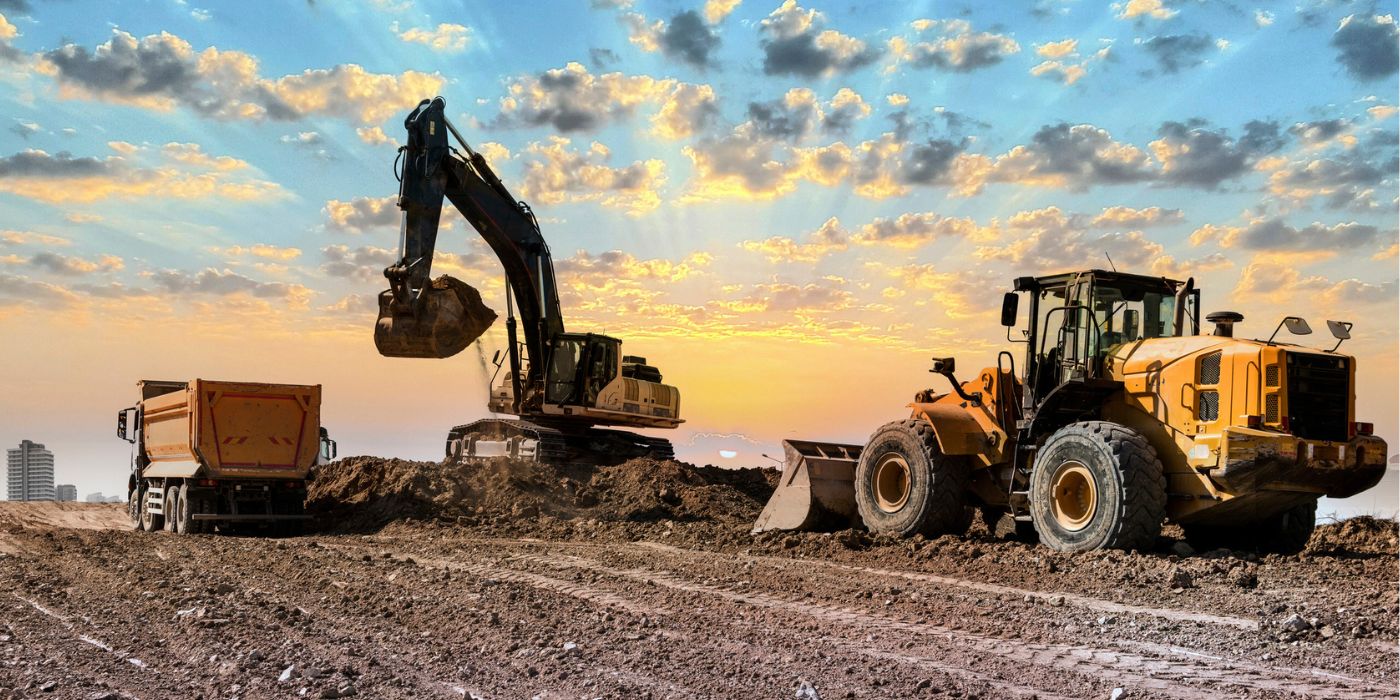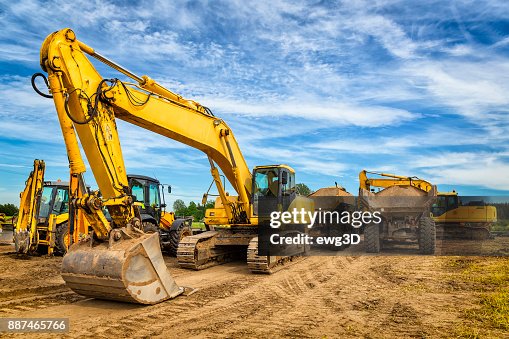Rental Company in Tuscaloosa AL: Top-Quality Equipment for each Project
Rental Company in Tuscaloosa AL: Top-Quality Equipment for each Project
Blog Article
Exploring the Financial Advantages of Leasing Construction Equipment Contrasted to Owning It Long-Term
The decision in between leasing and owning building devices is crucial for financial management in the market. Renting out deals immediate expense savings and operational adaptability, enabling companies to allot resources more efficiently. Comprehending these nuances is vital, especially when considering exactly how they straighten with certain job demands and financial strategies.

Expense Contrast: Leasing Vs. Owning
When reviewing the monetary implications of possessing versus renting out building and construction equipment, an extensive price contrast is essential for making notified decisions. The choice in between possessing and leasing can dramatically influence a company's bottom line, and comprehending the connected costs is crucial.
Renting building and construction devices generally entails reduced ahead of time expenses, enabling organizations to assign resources to other operational requirements. Rental contracts often consist of adaptable terms, allowing firms to gain access to advanced machinery without lasting commitments. This flexibility can be especially beneficial for temporary projects or rising and fall workloads. Nonetheless, rental prices can collect over time, possibly surpassing the expense of ownership if tools is required for a prolonged period.
Conversely, possessing building and construction tools calls for a considerable initial financial investment, together with ongoing expenses such as insurance policy, funding, and depreciation. While ownership can result in long-lasting cost savings, it additionally locks up funding and might not supply the same degree of versatility as renting. In addition, owning devices demands a dedication to its usage, which may not constantly align with project demands.
Eventually, the choice to rent or own should be based upon a thorough evaluation of particular task demands, financial capacity, and long-term calculated objectives.

Upkeep Expenditures and Obligations
The option in between leasing and owning construction tools not only entails economic factors to consider but also includes ongoing maintenance expenditures and obligations. Possessing tools requires a considerable dedication to its maintenance, that includes routine examinations, fixings, and potential upgrades. These responsibilities can rapidly accumulate, bring about unforeseen prices that can strain a spending plan.
In contrast, when renting equipment, maintenance is usually the responsibility of the rental company. This plan allows professionals to avoid the monetary concern connected with wear and tear, along with the logistical obstacles of organizing fixings. Rental arrangements often consist of provisions for maintenance, meaning that contractors can concentrate on completing projects as opposed to stressing concerning devices condition.
Moreover, the varied series of devices offered for lease allows business to pick the current models with sophisticated innovation, which can enhance performance and performance - scissor lift rental in Tuscaloosa Al. By opting for services, businesses can stay clear of the long-lasting liability of devices depreciation and the linked maintenance migraines. Ultimately, reviewing upkeep expenses and duties is essential for making an educated decision about whether to possess or rent out building and construction tools, significantly influencing overall job prices and functional efficiency

Depreciation Effect On Ownership
A significant element to take into consideration in the decision to possess building tools is the impact of devaluation on general ownership expenses. Depreciation stands for the decline in worth of the tools in time, influenced by aspects such as use, damage, and improvements in innovation. As equipment ages, its market price decreases, which can dramatically affect the owner's monetary placement when it comes time to trade the equipment or market.
For construction firms, this depreciation can translate to significant losses if the equipment is not utilized to its fullest potential or if it comes to be out-of-date. Proprietors should make up devaluation in their financial forecasts, which can bring about greater overall expenses compared to renting out. In addition, the tax effects of devaluation can be complicated; while it might provide some tax obligation advantages, these are usually offset by the reality of lowered resale worth.
Eventually, the concern of depreciation stresses the importance of comprehending the long-lasting economic commitment included in having building and construction tools. Companies have to carefully examine how usually they will make use of the tools and the potential financial effect of devaluation to make an educated choice about possession versus renting out.
Financial Adaptability of Leasing
Leasing construction equipment uses considerable monetary versatility, allowing firms to designate resources extra successfully. This adaptability is specifically crucial in a market characterized by changing project needs and differing workloads. By choosing to rent out, services can prevent the significant funding outlay required for buying tools, preserving capital for various other functional requirements.
Furthermore, renting out tools enables companies to tailor published here their devices choices to certain job demands without the lasting dedication related to possession. This means that organizations can easily scale their devices supply up or down based upon present and anticipated task demands. Subsequently, this flexibility minimizes the risk of over-investment in equipment that might come to be underutilized or outdated over time.
One more monetary benefit of renting out is the capacity for tax obligation benefits. Rental settlements are usually taken into consideration operating expenditures, permitting for prompt tax reductions, unlike devaluation on owned devices, which is spread over several years. scissor lift rental in Tuscaloosa Al. This instant expenditure acknowledgment can even more boost a firm's cash placement
Long-Term Job Factors To Consider
When evaluating the long-term demands of a construction service, the decision in between renting and having tools comes to be a lot more intricate. For tasks with prolonged timelines, acquiring tools might seem helpful due to the possibility for reduced overall prices.
Additionally, technological advancements posture a considerable factor to consider. The construction market is evolving swiftly, with brand-new tools offering enhanced efficiency and safety attributes. Renting permits companies to access the newest innovation without devoting to the high upfront costs related to site here purchasing. This flexibility is especially helpful for organizations that deal with diverse jobs calling for various kinds of equipment.
Furthermore, financial stability plays an important function. Having devices commonly entails considerable capital expense and depreciation issues, while leasing enables more predictable budgeting and capital. Eventually, the choice between renting out and owning ought to be aligned with the strategic goals of the building business, taking into consideration both expected and existing task demands.
Conclusion
Finally, renting out building and construction tools offers considerable financial advantages over long-lasting ownership. The decreased upfront costs, removal of construction equipment manufacturers maintenance responsibilities, and evasion of depreciation add to improved capital and economic flexibility. scissor lift rental in Tuscaloosa Al. Moreover, rental repayments function as immediate tax obligation reductions, further profiting professionals. Inevitably, the choice to rent out instead than very own aligns with the dynamic nature of building jobs, enabling for versatility and access to the most recent equipment without the financial problems associated with ownership.
As tools ages, its market worth decreases, which can substantially affect the proprietor's monetary placement when it comes time to offer or trade the devices.
Renting out building and construction equipment uses considerable monetary versatility, enabling firms to allot sources more successfully.In addition, renting out equipment enables firms to customize their equipment choices to specific task needs without the lasting commitment connected with ownership.In verdict, leasing construction devices provides considerable monetary benefits over lasting possession. Inevitably, the choice to lease instead than very own aligns with the dynamic nature of building projects, enabling for versatility and access to the most current devices without the financial burdens linked with possession.
Report this page